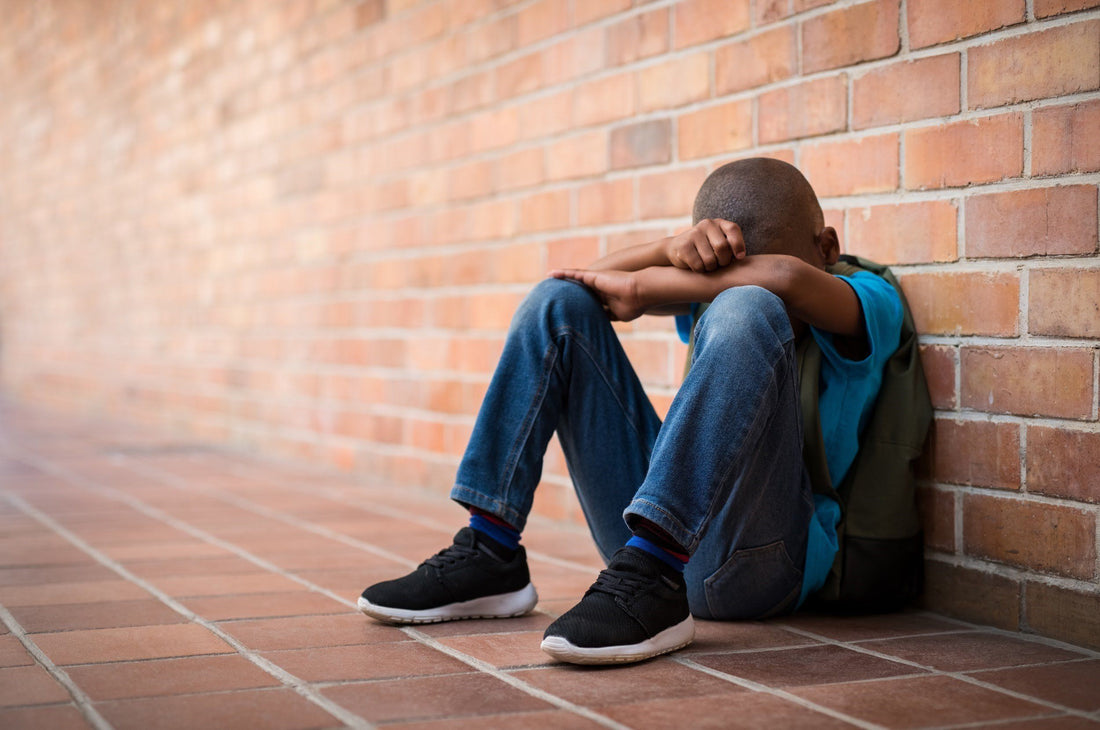Children are often taught to face their anxieties, but in the case of bullying, this goes against another common piece of advice—to ignore the bully. While it’s true that facing a bully can lead to even more bullying, in my experience, simply ignoring the bullying does not ensure that it will stop. Moreover, doing nothing can feel very disempowering, which can then lead to anxiety. You can empower your child to stand up for themselves and practice telling their bullies to “back off” in a firm manner; but when should you get involved as a parent?
Social Anxiety & Bullying
One thing is clear: bullying causes anxiety in kids. Over time, bullying can also lead to depression, health complaints, and poor school performance.
Less clear is what we as parents should do about it. While some research has found that parenting is not a factor in whether a child will be bullied, other studies show that parenting is a crucial factor, with some parenting styles (overprotective) associated with victimization and others being preventive. If our kids fall prey to bullies, there are actions we can take to help them. These actions, though, need to address not only the bullying but also our kids’ self-confidence and empowerment.
Beyond Bruises: Bullying & Emotional Distress
Our culture focuses on physical aggression, but bullying can take many forms. “Indirect bullying” (psychological or social aggression) can actually be more damaging than physical aggression in terms of anxiety. In the case of my son, when boys tried to hurt him physically in the schoolyard, he was able to block their attacks with martial arts. It wasn’t pleasant, but he could defend himself and the bullying did not seem to damage his self-esteem. Later, my son faced bullying that he did not know how to deal with when one girl decided he was “gross” after he came to school with a swollen lip. She and her friends started acting like everything he touched was contaminated. Over a few weeks, they influenced most of the other students to do the same, basically shunning him. This social rejection was incredibly hurtful, and my son felt completely unable to defend himself against this sort of attack. He said he would much prefer a kid trying to beat him up because that was something he could defend himself against, while this was practically an invisible threat.
(It is actually much more common for girls to suffer from this type of bullying than from physical bullying, which led past researchers to assume that girls are not bullied as often as boys.)
The Tricky Balance between Parental Action and Child Empowerment
When my son, almost in tears, finally confided in me, my first impulse was to march to the school and demand this behavior be stopped straight away. But I knew how important it is for my son to feel safe in talking to me about any problem without worrying that I might overreact or embarrass him. It was also important for his sense of empowerment that any decisions about action come from him. So I held back and listened. I asked questions and made it clear that his feelings were valid, while gently insisting that his conclusions—such as something being wrong with him—were inaccurate. I also told him about how I suffered from similar bullying in school.
Only then did I ask him for permission to talk to his teacher. At first, he refused. As the bullying worsened, though, I kept asking (while assuring him I wouldn’t do anything without his consent) and he finally agreed. The teacher’s response was swift and skillful, and the bullying ended abruptly. The result was a positive learning experience for everyone involved—and it made me question the wisdom of waiting. The problem could have been solved sooner if I’d skipped the conversations with my son and acted without his permission. However, my son is now much more willing to come forward with his problems. I hope that the trust and empowerment built by letting him decide when to take action will help in the end, especially during his teenage years.
Bullying Ends, But the Anxiety Lingers
While addressing various “bullying outbreaks” together has strengthened our relationship, the bullying experiences have affected my son’s self-esteem. It shows up in anxiety about doing things differently than other kids, when I and his father have always celebrated individuality. He can be self-critical about things like his appearance, shrugging off my reassurances with an eye-rolling “Of course you say that; you’re my mom!”
But some of my efforts seem to be helping. Alongside healthy lifestyle practices like good nutrition, meditation and relaxation techniques, chief among these is listening deeply and attentively. Through listening, I express compassion for his worries and insecurities, the celebration of his victories and achievements, and validation of his unique interests and perspectives. Slowly, his self-confidence is strengthening, and he is growing into a young man who seems exceptionally mature for his age. I hope that the anxiety of his early years will serve as fertile soil for a compassionate perspective during his teenage years and beyond.


 Improve focus and clarity.
Improve focus and clarity.


